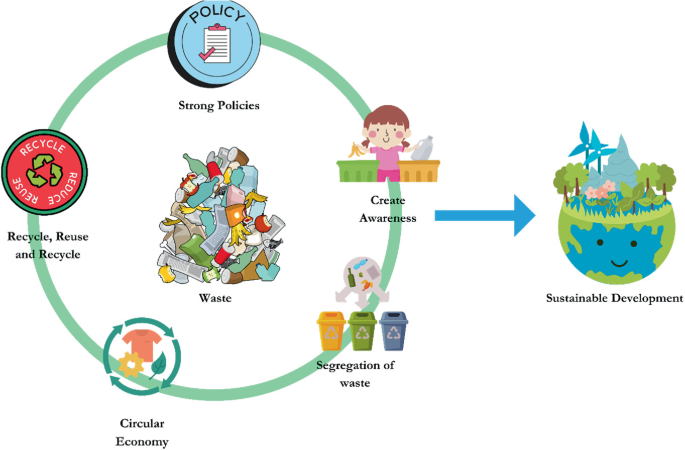The Ultimate Guide To Reclaim Waste
The Ultimate Guide To Reclaim Waste
Blog Article
8 Easy Facts About Reclaim Waste Described
Table of ContentsWhat Does Reclaim Waste Mean?An Unbiased View of Reclaim WasteReclaim Waste Can Be Fun For AnyoneAn Unbiased View of Reclaim WasteReclaim Waste Fundamentals Explained
Discover the types, events, and forms of liquid waste. Domestic sewer waste describes the waste and products from a residential septic tank. This sort of waste is produced by human beings in houses, schools, and various other structures. This only consists of sewage-disposal tanks that have a drainpipe field. The proper management and disposal of domestic sewage waste require liquid waste to be moved to a sewer treatment plant where the correct methods and tools are used to purify and throw away waste.
Commercial waste frequently includes prospective hazards, such as combustible products or a mix of fluid and strong waste products, and calls for an advanced and comprehensive disposal process. The disposal of industrial waste generally includes the filtration of waste prior to transportation to make certain risk-free and proper disposal. Industrial waste is produced from by-products and overflow of commercial processes and production.
This type of waste can not utilize the very same sewer administration transportation or procedures as septic or commercial fluids. The hazardous waste management process requires the evaluation and screening of fluid waste before it goes through the disposal procedure (liquid waste removal melbourne). Overflow waste is the fluid waste that originates from drainage and excess stormwater in extremely populated areas or cities
Drainage waste can create contamination and flooding if not handled effectively. Making sure appropriate waste administration can protect against calamities and decrease ecological injury.
Reclaim Waste Can Be Fun For Everyone
Contact PROS Services today to discover our waste management and disposal services and the correct means to take care of the liquid waste you produce.
(https://reclaimwaste1.carrd.co/)This supposed 'wastewater' is not only an important resource however, after treatment, will be launched to our land, rivers or the sea. Utilized water from commodes, showers, bathrooms, kitchen sinks, laundries and commercial procedures is understood as wastewater.

water used to cool down equipment or clean plant and devices). Stormwater, a kind of wastewater, is overflow that streams from agricultural and metropolitan areas such as roofing systems, parks, gardens, roads, courses and rain gutters into stormwater drains, after rainfall. Stormwater flows neglected straight to neighborhood creeks or rivers, eventually getting to the sea.
Reclaim Waste Can Be Fun For Anyone
In Queensland, the majority of wastewater is dealt with at sewage treatment plants. Wastewater is carried from domestic or industrial websites through a system of sewage systems and pump stations, referred to as sewage reticulation, to a sewage treatment plant. Local governments build, preserve and operate most sewer treatment plants. Operators are certified under the Environmental Protection Act 1994 to release treated wastewater at an appropriate environmental criterion into rivers.
The Department of Natural Resources encourages regional federal governments regarding managing, operating and keeping sewerage systems and treatment plants. In unsewered locations, local governments might call for owners to mount private or home sewage therapy systems to treat domestic wastewater from bathrooms, cooking areas, bathrooms and laundries. The Department of Natural Resources authorises the use of home systems when they are confirmed to be reliable.
In some brand-new communities, therapy of some stormwater to eliminate litter, sand and gravel has begun utilizing gross contaminant traps. Wastewater therapy happens in four phases: Eliminates solid matter.
Wastewater then moves into large tanks where solids clear up and are eliminated as sludge. Grease and residue are skimmed from the surface. Makes use of tiny living organisms recognizes as micro-organisms to damage down and get rid of continuing to be liquified wastes and fine bits. Micro-organisms and wastes are integrated in the sludge. Removes nitrogen and phosphorus nutrients that might create algal blooms in our waterways and intimidate aquatic life.
Some Known Facts About Reclaim Waste.
Nutrient elimination is not offered whatsoever sewage treatment plants since it calls for costly specialized equipment. It is coming to be extra common in Queensland. Clear fluid effluent generated after therapy may still consist of disease-causing micro-organisms. If this effluent is Look At This released right into waterways such as rivers or the sea, the micro-organisms will ultimately die out.

This generally suggests wastewater has actually to be treated or pollutants gotten rid of prior to it can be released to waterways. A lot of wastewater flows into the sewerage system. Under the Act, city governments provide approvals and licences for environmentally relevant tasks (Ages) involving wastewater releases that could have a neighborhood effect. The division provides approvals and permits to Ages entailing wastewater releases that might have a regional or statewide effect.
4 Easy Facts About Reclaim Waste Shown
Or else, samples are taken for laboratory evaluation. Frequently numerous tests are needed to establish the degrees of each of the different toxins such as oils, heavy metals and pesticides in water. Tracking provides factual info regarding water high quality and can confirm that licence conditions are being met. The info obtained through surveillance supplies the basis for making water top quality choices.
Report this page